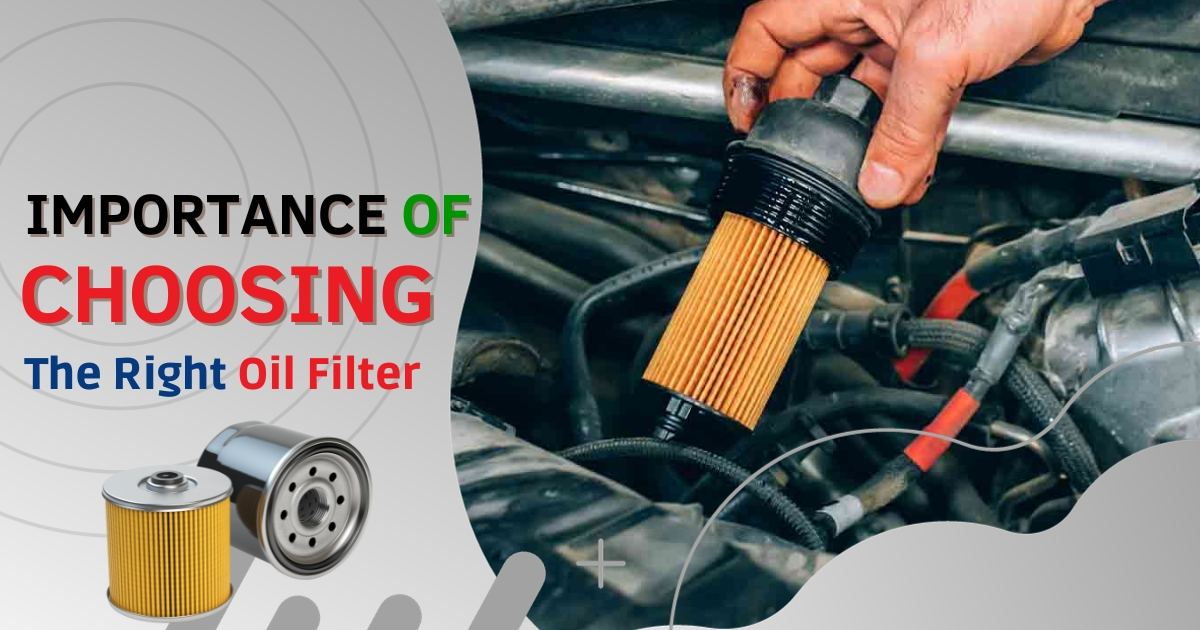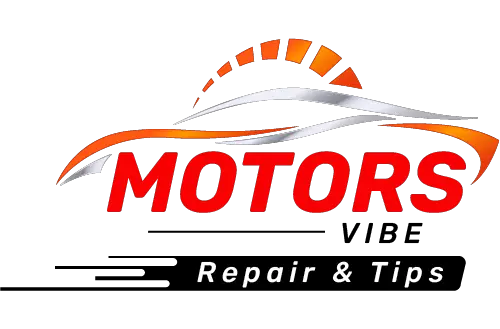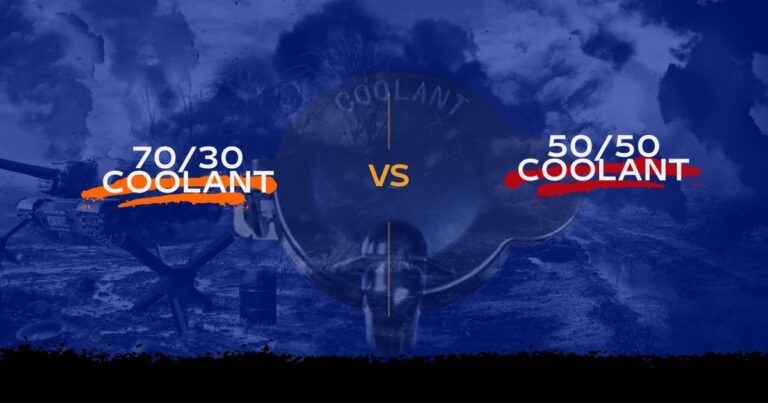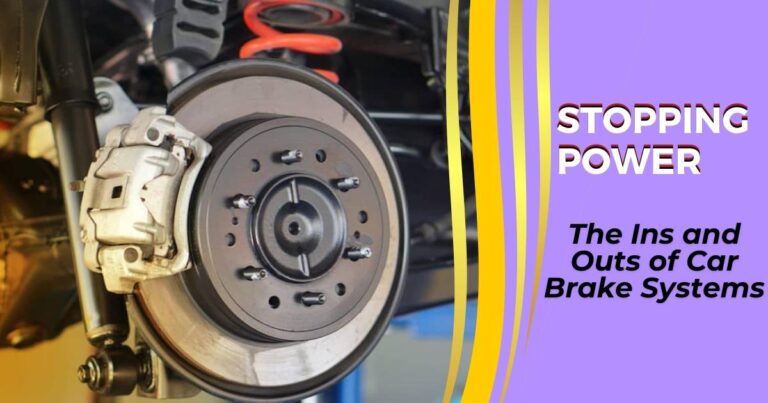Importance of Choosing the Right Oil Filter
The oil filter plays a crucial role in protecting the engine by removing harmful substances in the oil that could damage the engine. Without the filter, the engine would be vulnerable to harmful elements that accumulate during its operation.
Clean oil means the engine’s moving parts can do their job without getting too hot or rubbing too much. This, in turn, makes the engine last longer and use the fuel more efficiently. In this guide, we’ll discuss the role of an oil filter in maintaining engine performance and why it’s super important to get the right one for your engine.
Role of Oil Filter in Maintaining Engine Health and Performance
Removing Contaminants
The primary function of the oil filter is to act as a barrier against contaminants in the engine oil. The filter helps capture particles such as dirt, metal fragments, and sludge, thereby preventing them from circulating through the engine. By doing so, the oil filter ensures that the engine is supplied with clean and uncontaminated oil, which minimizes the risk of abrasive damage to engine components.
Reduced Wear and Tear
A well-functioning oil filter helps reduce wear and tear on engine and engine components at large. If you don’t remove the oil contaminants, they are bound to find their way to the engine, causing increased friction and wear on critical engine components. This is where the oil filter comes in to help maintain the cleanliness and effectiveness of the engine oil, which, in turn, reduces wear and tear on the engine components.
Improved Lubrication
Clean oil is important in reducing friction between moving parts in the engine, such as the pistons, bearings, and camshaft. The oil filter plays a key role in maintaining the quality of the engine oil by preventing the buildup of impurities. This ensures that the oil can effectively lubricate and protect moving parts, which helps reduce friction and heat generation.
Enhanced Fuel Efficiency
Using a quality oil filter is important in achieving and maintaining optimal fuel efficiency. The improved engine performance not only ensures smoother engine operation but also minimizes energy losses, ultimately leading to improved fuel economy. The cleaner oil provided by the oil filter also facilitates efficient combustion, which has a positive impact on fuel efficiency and overall performance.
Temperature Regulation
Contaminant-free oil is often better equipped to dissipate heat generated during engine operation. The filter helps ensure that the oil remains clean and free-flowing, which, in turn, aids in regulating the engine’s temperature. This is crucial for preventing overheating, which can lead to performance degradation and damage to engine components.
Prevention of Sludge Formation
Over the course of its use, engine oil undergoes a natural breakdown process that can result in the formation of sludge. The sludge formation is often a consequence of the oil interacting with contaminants, dirt, and other particles within the engine. The oil filter plays a crucial role in preventing sludge formation by capturing and removing particles that contribute to undesirable sludge buildup.
Maintaining Oil Pressure
The condition of the oil and the effectiveness of the oil filter have a direct impact on oil pressure. Ideally, a clogged or dirty oil filter can impede the flow of oil, leading to reduced oil pressure. An oil filter helps uphold the cleanliness and unimpeded flow of oil, thereby guaranteeing that oil pressure stays within the optimal range.

Consequences of Using the Wrong Oil Filter
Selecting the right oil filter for your car is key in ensuring the optimal functioning and prolonged lifespan of your car engine. The right filter helps keep the engine running smoothly, which helps minimize wear and maximize performance. Conversely, using the wrong filter can expose your car engine to unnecessary risks, including;
Engine Damage
Using an incompatible oil filter can open the door to a host of problems, leading to significant damage to your engine. For instance, using the wrong oil filter might not fit correctly, which can, in turn, disrupt the delicate balance of the engine system. The mismatch can also result in compromised seals, leaks, and severe internal engine damage.
Reduced Filtration Efficiency
Choosing the wrong oil filter can also pose a direct threat to the filtration efficiency of the engine. Ideally, different engines require specific filter characteristics to ensure optimal performance. Using the wrong filter might not capture and remove contaminants effectively, making harmful particles move freely. This can, in turn, undermine the protective function of the oil filter, thereby putting vital engine components at risk.
Insufficient Contaminant Removal
An improper oil filter might lack the precision needed to remove specific contaminants, leaving your engine vulnerable to the infiltration of damaging particles. Inadequate contaminant removal can result in the accumulation of debris, sludge, and metal fragments within the engine, which can compromise its performance.
Increased Engine Wear
One of the direct consequences of using the wrong oil filter is the escalation of engine wear. Insufficient contaminant removal, coupled with compromised lubrication, exposes moving parts to heightened friction and abrasion. Over time, this accelerated wear can lead to premature aging of components, which diminishes the engine’s operational lifespan and necessitates costly repair.
Decreased Performance
The use of an improper oil filter inevitably takes a toll on the engine’s performance. Reduced filtration efficiency, inadequate contaminant removal, and increased wear collectively contribute to a decline in overall engine functionality. This manifests as decreased power, compromised fuel efficiency, and a general deterioration in the engine’s ability to operate optimally.
Types of Oil Filters
Mechanical Oil Filters
Mechanical oil filters utilize a porous filter medium, typically made of materials like paper or cellulose. As engine oil courses through the filter, it traps the contaminants physically, thereby preventing them from circulating through the engine. The best part about mechanical oil filters is that they are simple and reliable. However, these filters require more frequent replacements and regular maintenance schedules.
Magnetic Oil Filters
Magnetic oil filters are a specialized type of oil filter designed to enhance the filtration process by leveraging magnetic fields. Unlike traditional mechanical filters, magnetic filters employ embedded magnets strategically placed within the filter housing. The magnets are designed to attract metal contaminants such as iron shavings, thereby preventing them from circulating further within the engine.
Magnetic oil filters are particularly effective in environments where metal debris is a concern. This characteristic makes them suitable for engines prone to metal wear or those operating in heavy-duty conditions. However, magnetic filters may have limitations in dealing with non-ferrous contaminants. As such, additional filtration methods may be necessary for comprehensive protection.
Centrifugal Oil Filters
Centrifugal oil filters, just as the name suggests, are a type of filter that uses centrifugal force to remove contaminants from engine oil. Centrifugal oil filters operate on the principle of spinning the oil rapidly, causing the heavier contaminants to fling to the outer edge of the filter housing. Generally, centrifugal filters are effective at removing both small and large particles from the oil, allowing only clean oil to exit the filter.
High-Efficiency Oil Filters
High-efficiency oil filters are designed to provide superior filtration performance compared to standard filters. These filters are engineered to capture smaller particles and contaminants, making them ideal for applications that require efficient oil filtration.
High-efficiency oil filters often utilize advanced filter media, such as synthetic fibers or micro-glass, with a more intricate structure to allow for finer filtration of contaminants. Despite the finer filtration, high-efficiency filters are engineered to maintain optimized flow rates to ensure proper lubrication of the engine components.
High-efficiency oil filters are often more expensive than standard filters due to the advanced materials and technologies used in their construction. However, the extended service life and enhanced protection they offer often outweigh the initial cost.
Tips to Consider When Choosing an Oil Filter
For starters, there are a lot of misconceptions surrounding choosing the best oil filter for your car. Just because an oil filter is expensive doesn’t mean it is the right one for you. When purchasing an oil filter for your car, it’s important to consider factors that go beyond the price tag. Here are some essential factors to keep in mind;
Compatibility with Your Vehicle
Not all oil filters fit every car model. The best oil filter should align with your car’s make, model, and engine type for optimal performance and engine protection. As such, it’s essential to check your vehicle’s specifications and the manufacturer’s recommendations to ensure compatibility.
Filtration Efficiency
The primary function of an oil filter is to remove contaminants from the engine oil. Always go for a filter with high filtration efficiency to help keep your engine free from any harmful contaminants. Filtration efficiency is expressed as the filter’s micron rating, and the lower the micron rating, the smaller the particles the filter can trap.
Quality of Construction
Consider the build quality of the oil filter. Filters with sturdy and durable materials are often less prone to leaks and offer better overall performance. A sturdy filter also ensures that it can withstand the pressure and demands of the engine.
Anti-Drain Back Valve
For best results, consider an oil filter with an anti-drain back valve feature. This valve helps prevent oil from draining out of the oil filter and returning to the engine sump when the engine is turned off. It also helps maintain oil pressure and ensures that the engine components receive lubrication immediately upon startup.
Bypass Valve
A bypass valve is another important component that allows oil to flow through the filter even if it becomes clogged. This is particularly useful in extreme conditions or when the filter is nearing the end of its lifespan. A good quality oil filter should always offer a reliable bypass valve to ensure continuous oil flow.
Filter Media Type
Oil filters use different types of filter media, such as paper, synthetic, or a combination of both. For instance, synthetic media offers superior filtration and durability compared to traditional paper filters. These filters are designed to capture smaller particles, which provides better filtration efficiency. Ideally, the choice depends on driving conditions, vehicle specifications, and desired engine protection.
Service Life and Change Interval
Consider the recommended service life and change interval of the oil filter. Some filters may have a longer lifespan or better performance under specific driving conditions. Knowing the maintenance requirements of your oil filter will help you plan for regular oil and filter replacements.
Driving Conditions
Consider your typical driving conditions. If you regularly drive in extreme conditions such as high temperatures, heavy traffic, or off-road, you may need a filter designed to handle these challenges. On the other hand, if your driving habit is slow and doesn’t strain the engine much, the manufacturer-supplied oil filter may suffice.
Also Read: SiriusXM Keeps Cutting Out in Car- Troubleshooting Guide
Conclusion
Choosing the right oil filter plays a significant role in ensuring maximum engine performance and longevity. Ideally, using the wrong filter can result in extensive engine damage and costly repairs in the long run. As such, it is essential to keep in mind the importance of choosing the right oil filter to ensure optimal engine performance.







